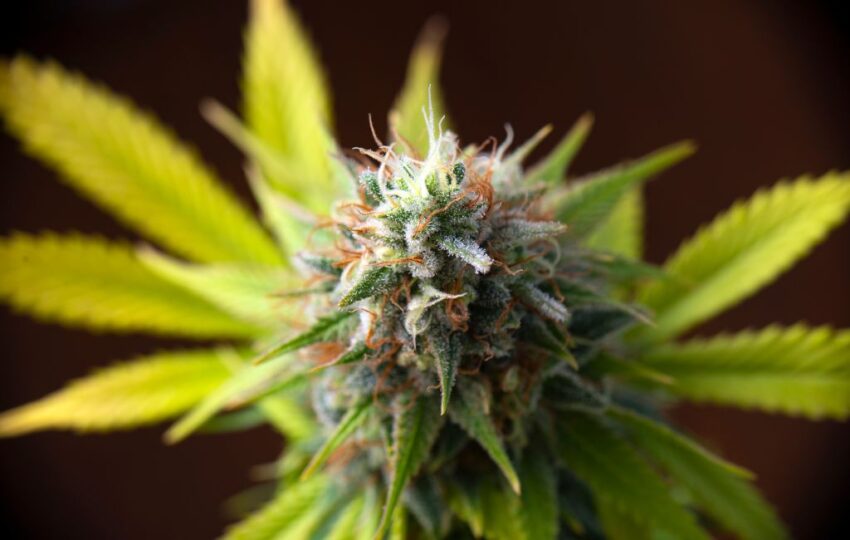Unlocking the Potential of THCa Flower for Anti-Inflammatory Benefits
The world of cannabis is vast and varied, with numerous compounds offering a range of potential health benefits. Among these, THCa (tetrahydrocannabinolic acid) has been gaining attention for its potential anti-inflammatory properties. Unlike its more famous counterpart THC, THCa is non-psychoactive, making it an attractive option for those seeking therapeutic benefits without the high. This article will explore the potential of thca flower anti-inflammatory benefits.
Understanding THCa
THCa is a cannabinoid found in raw and live cannabis plants. It is the precursor to THC, the compound responsible for the psychoactive effects of cannabis. When cannabis is heated through smoking, vaping, or cooking, THCa is converted into THC through a process called decarboxylation. In its raw form, THCa does not produce any psychoactive effects, which makes it appealing for medicinal use.
The Science Behind THCa’s Anti-Inflammatory Properties
Research into the anti-inflammatory properties of THCa is still in its early stages, but initial findings are promising. Inflammation is a natural response of the body to injury or infection, but chronic inflammation can lead to various health issues, including arthritis, autoimmune diseases, and even cancer. THCa is believed to interact with the body’s endocannabinoid system, which plays a role in regulating inflammation and immune response.
Studies have shown that THCa may inhibit the production of pro-inflammatory cytokines, which are proteins that signal the immune system to initiate an inflammatory response. By reducing the levels of these cytokines, THCa could potentially help manage chronic inflammation and its associated symptoms.
Case Studies and Research
Several studies have explored the potential of THCa as an anti-inflammatory agent. A study published in the “Journal of Pharmacology and Experimental Therapeutics” found that THCa exhibited significant anti-inflammatory effects in animal models. The researchers noted that THCa reduced inflammation in a manner similar to non-steroidal anti-inflammatory drugs (NSAIDs), but without the gastrointestinal side effects commonly associated with these medications.
Another study conducted by the University of Guelph in Canada investigated the effects of THCa on inflammation in human cells. The researchers discovered that THCa was effective in reducing inflammation markers in cell cultures, suggesting its potential as a therapeutic agent for inflammatory conditions.
Potential Benefits of THCa Flower
THCa flower, which is cannabis in its raw form, offers a unique way to harness the benefits of THCa. Consuming raw cannabis does not produce the psychoactive effects associated with THC, allowing users to experience the potential therapeutic benefits without impairment. Some potential benefits of THCa flower include:
- Reducing inflammation and pain associated with conditions like arthritis and fibromyalgia.
- Supporting immune system function and reducing the risk of autoimmune diseases.
- Providing neuroprotective effects that may benefit conditions like Alzheimer’s and Parkinson’s disease.
- Offering antioxidant properties that can help protect cells from damage.
How to Use THCa Flower
There are several ways to incorporate THCa flower into your wellness routine. Some popular methods include:
- Juicing: Fresh cannabis leaves and flowers can be juiced to create a nutrient-rich beverage. This method preserves the THCa content and allows for easy consumption.
- Raw Consumption: Adding raw cannabis leaves to salads or smoothies is another way to consume THCa without heating it.
- Tinctures and Oils: Some companies offer THCa tinctures and oils that can be taken sublingually or added to food and drinks.
Considerations and Precautions
While THCa offers promising anti-inflammatory benefits, it is important to approach its use with caution. As with any supplement or medication, individual responses can vary. Consulting with a healthcare professional before incorporating THCa into your routine is advisable, especially for those with pre-existing health conditions or those taking other medications.
Additionally, the legal status of cannabis and its derivatives varies by region. It is important to be aware of local laws and regulations regarding the use and possession of cannabis products.
Conclusion
THCa flower presents an intriguing option for those seeking natural anti-inflammatory solutions. With its non-psychoactive properties and potential health benefits, it offers a unique approach to managing inflammation and supporting overall wellness. As research continues to unfold, THCa may become a valuable tool in the arsenal against chronic inflammation and its related health challenges.
By exploring the potential of THCa, individuals can make informed decisions about their health and wellness, embracing the possibilities that this cannabinoid has to offer.

